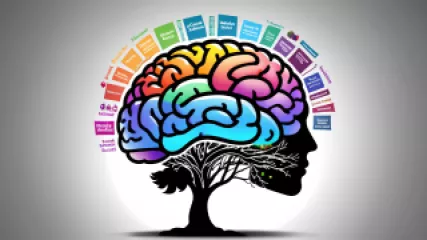Exploring Intelligence Theories: An Ultimate Guide to Learning Styles Theory
Intelligence is a fascinating and complex aspect of human cognition. Throughout history, researchers and psychologists have developed various theories to understand the nature of intelligence and how it influences our learning and cognitive abilities. One such theory that has gained significant attention is the Learning Styles Theory.
Introduction to Intelligence Theories
Theories of intelligence are frameworks that attempt to explain how individuals acquire knowledge, solve problems, and understand the world around them. These theories provide insights into the different aspects of intelligence and how they contribute to overall cognitive functioning.
Psychological theories of intelligence have evolved over time, with each offering a unique perspective on what intelligence encompasses. Some theories focus on cognitive abilities, while others consider emotional intelligence and social aspects as integral components of intelligence.
Understanding the Learning Styles Theory
The Learning Styles Theory proposes that individuals have distinct preferences for how they receive and process information. According to this theory, people can be categorized into different learning styles based on their preferred ways of learning. These learning styles include visual, auditory, kinesthetic, and reading/writing.
Visual learners prefer to process information through images, charts, and diagrams. They benefit from visual aids and find it easier to understand and remember information when presented in a visual format.
Auditory learners learn best through listening. They comprehend information more effectively when it is presented in an auditory manner, such as lectures, discussions, or podcasts.
Kinesthetic learners learn by doing and experiencing. They prefer hands-on activities, experiments, and physical engagement to grasp and retain information. Kinesthetic learners often excel in subjects like sports, dance, and other physical activities.
Reading/writing learners learn best through written words. They prefer reading and writing tasks, such as textbooks, notes, and written instructions. These learners often excel in subjects like literature, writing, and research.
The Benefits and Criticisms of Learning Styles Theory
The Learning Styles Theory has been widely debated among researchers and educators. Proponents argue that tailoring instruction to students' preferred learning styles can enhance their engagement and improve learning outcomes. By presenting information in a way that aligns with learners' preferences, educators can optimize the learning process.
However, critics of the theory argue that there is insufficient empirical evidence to support the idea that matching instruction to learning styles leads to improved learning outcomes. Some studies have shown that the effectiveness of learning styles-based instruction is limited or non-existent. It is essential to consider diverse teaching strategies and cater to multiple learning styles within a classroom setting.
Intelligence Improvement Techniques
While intelligence is often believed to be a fixed trait, research suggests that it can be developed and improved over time. Here are some techniques that can help enhance your cognitive abilities:
- Embrace a growth mindset: Believe in your ability to learn and grow. Emphasize effort and persistence over innate talent.
- Engage in challenging activities: Regularly challenge yourself with new and complex tasks to stimulate your brain and expand your cognitive abilities.
- Practice mindfulness: Cultivate mindfulness through meditation or other practices to enhance attention, focus, and cognitive flexibility.
- Adopt effective study strategies: Use techniques like spaced repetition, active recall, and elaborative interrogation to optimize your learning and retention.
- Stay physically active: Regular exercise has been linked to improved cognitive function, memory, and overall brain health.
Conclusion
Intelligence is a multifaceted concept that encompasses various cognitive abilities. The Learning Styles Theory offers insights into how individuals prefer to receive and process information. While learning styles can be helpful in understanding individual preferences, it is crucial to consider a diverse range of teaching strategies to cater to the needs of all learners.
Remember, intelligence is not fixed, and with the right mindset and techniques, you can continuously improve and expand your cognitive abilities.






